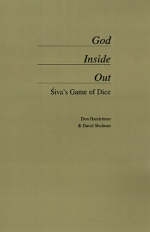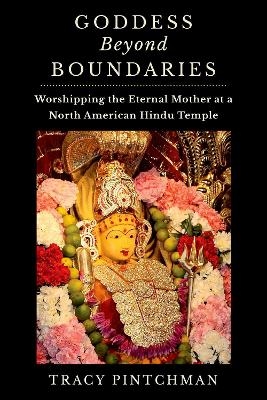
God Inside-Out
Siva's Game of Dice
Seiten
1997
Oxford University Press Inc (Verlag)
978-0-19-510845-3 (ISBN)
Oxford University Press Inc (Verlag)
978-0-19-510845-3 (ISBN)
Siva, one of the great Hindu gods, spends his time playing dice with his wife, to whom he habitually loses. The result of the game is our world, which turns the god inside-out and changes his internal composition. This book attempts to understand the logic implicit in this theology of play, fragmentation, divine self-knowledge and love.
This book offers a new exploration of the mythology of the Hindu god Siva, who spends his time playing dice with his wife, to whom he habitually loses. The result of the game is our world, which turns the god inside-out and changes his internal composition. Hindus maintain that Siva is perpetually absorbed in this game, which is recreated in innumerable stories, poems, paintings, and sculptural carvings. This notion of the god at play, argue Handelman and Shulman,
is one of the most central and expressive veins in the metaphysics elaborated through the centuries, in many idioms and modes, around the god. The book comprises three interlocking essays;
the first presents the dice-game proper, in the light of the texts and visual depictions the authors have collected. The second and third chapters take up two mythic "sequels" to the game. Based on their analysis of these sequels, the authors argue that notions of "asceticism" so frequently associated with Siva, with Yoga, and with Hindu religion are, in fact, foreign to Hinduism's inherent logic as reflected in Siva's game of dice. They suggest an alternative reading of this set of practices
and ideas, providing startling new insights into Hindu mythology and the major poetic texts from the classical Sanskrit tradition.
This book offers a new exploration of the mythology of the Hindu god Siva, who spends his time playing dice with his wife, to whom he habitually loses. The result of the game is our world, which turns the god inside-out and changes his internal composition. Hindus maintain that Siva is perpetually absorbed in this game, which is recreated in innumerable stories, poems, paintings, and sculptural carvings. This notion of the god at play, argue Handelman and Shulman,
is one of the most central and expressive veins in the metaphysics elaborated through the centuries, in many idioms and modes, around the god. The book comprises three interlocking essays;
the first presents the dice-game proper, in the light of the texts and visual depictions the authors have collected. The second and third chapters take up two mythic "sequels" to the game. Based on their analysis of these sequels, the authors argue that notions of "asceticism" so frequently associated with Siva, with Yoga, and with Hindu religion are, in fact, foreign to Hinduism's inherent logic as reflected in Siva's game of dice. They suggest an alternative reading of this set of practices
and ideas, providing startling new insights into Hindu mythology and the major poetic texts from the classical Sanskrit tradition.
| Erscheint lt. Verlag | 11.12.1997 |
|---|---|
| Zusatzinfo | halftones, line drawings |
| Verlagsort | New York |
| Sprache | englisch |
| Maße | 141 x 210 mm |
| Gewicht | 285 g |
| Themenwelt | Geisteswissenschaften ► Religion / Theologie ► Hinduismus |
| ISBN-10 | 0-19-510845-0 / 0195108450 |
| ISBN-13 | 978-0-19-510845-3 / 9780195108453 |
| Zustand | Neuware |
| Haben Sie eine Frage zum Produkt? |
Mehr entdecken
aus dem Bereich
aus dem Bereich
Worshipping the Eternal Mother at a North American Hindu Temple
Buch | Hardcover (2024)
Oxford University Press Inc (Verlag)
79,80 €


